
Victorian artist Cattermole painted a popular image of a
Here lay Duncan, His silver skin laced with his golden blood, And his gashed stabs looked like a breach in nature. For ruin's wasteful entrance; there, the murderers, Steeped in the colors of their trade, their daggers. 95 Unmannerly breeched with gore. Who could refrain, That had a heart to love, and in that heart.
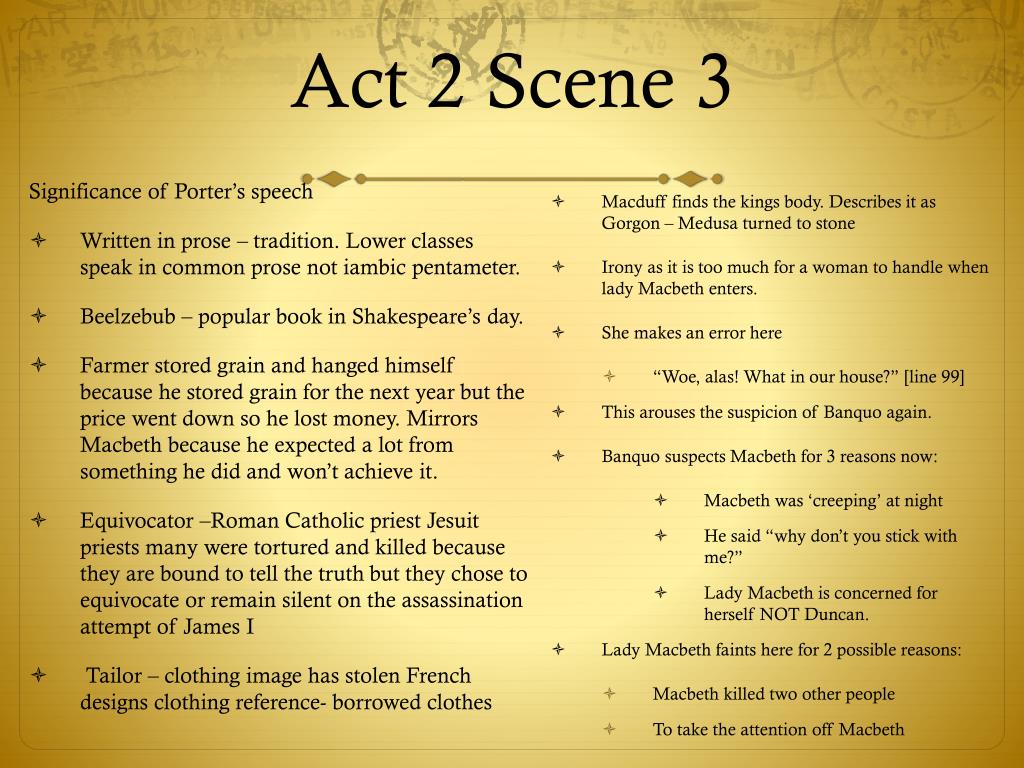
Macbeth Act 2 Scene 3 cloudshareinfo
🎭 We are a completely amateur Shakespearean theatre company founded in 1924. Therefore, _all_ *Super Thanks* and *Thanks* donations go towards funding our f.

Kedar Adour reviews MACBETH at Marin Shakes has a great Act 2
Act 3, scene 2. Scene 2. Synopsis: Both Lady Macbeth and Macbeth express their unhappiness. Macbeth speaks of his fear of Banquo especially. He refers to a dreadful deed that will happen that night but does not confide his plan for Banquo's murder to Lady Macbeth. Enter Macbeth's Lady and a Servant. LADY MACBETH Is Banquo gone from court.
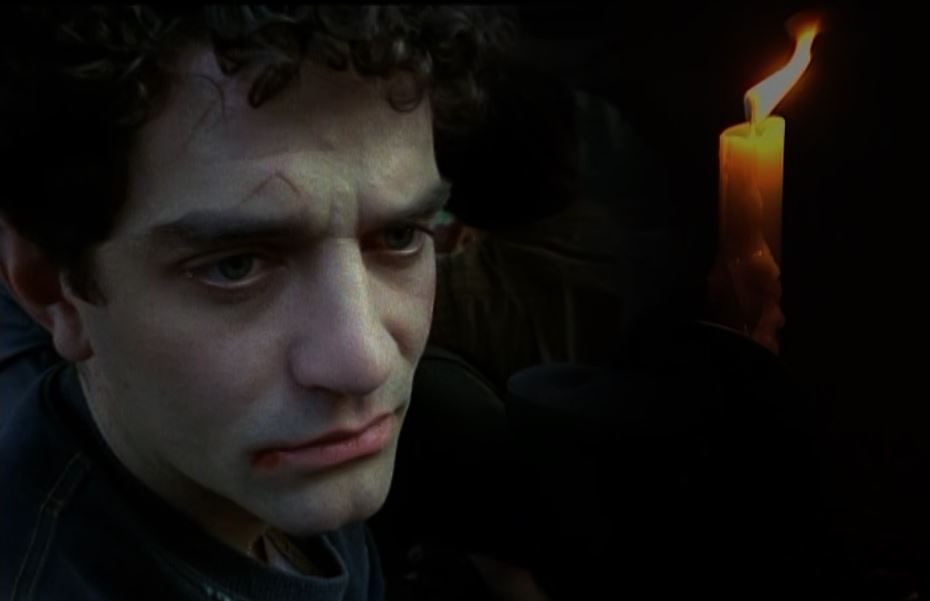
To kill the King Macbeth Act 2 Scene 3 English File
Analysis: Act 2: Scenes 3 & 4. After the bloody imagery and dark tone of the previous two scenes, the porter's comedy comes as a jarring change of tone. His good-natured joking with Macduff breaks up the mounting tension of the play and also comments obliquely on its themes. Unlike all the characters of noble birth, who speak in iambic verse.
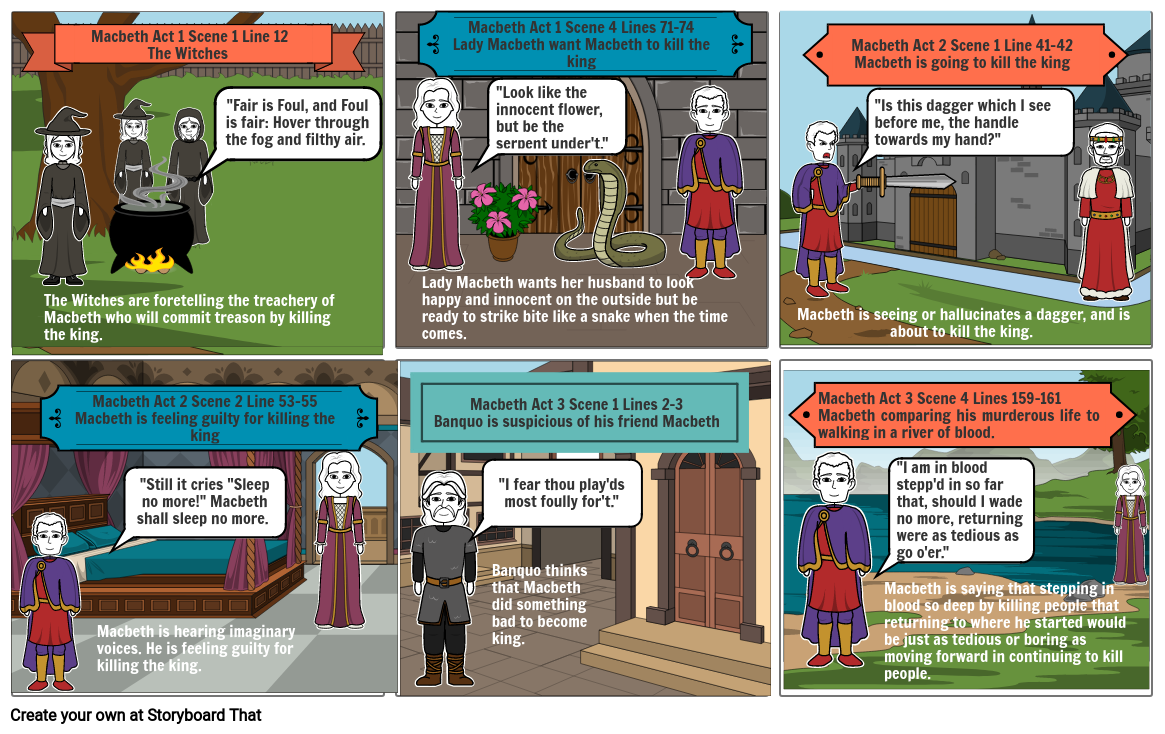
Macbeth Acts 13 Comic Strip Storyboard by 129a3d6c
The night has been unruly. Where we lay, 27. Our chimneys were blown down, and (as they say) 28. Lamentings heard i' th' air; strange screams of death, 29. And prophesying, with accents terrible, 30. Of dire combustion and confus'd events 31. New hatch'd to th' woeful time. The obscure bird 32.

macbeth act 3 scene 3
Macbeth Act 3 Scene 2 Lyrics. SCENE II. The palace. Enter LADY MACBETH and a Servant. LADY MACBETH. Is Banquo gone from court? SERVANT. Ay, madam, but returns again to-night. LADY MACBETH.
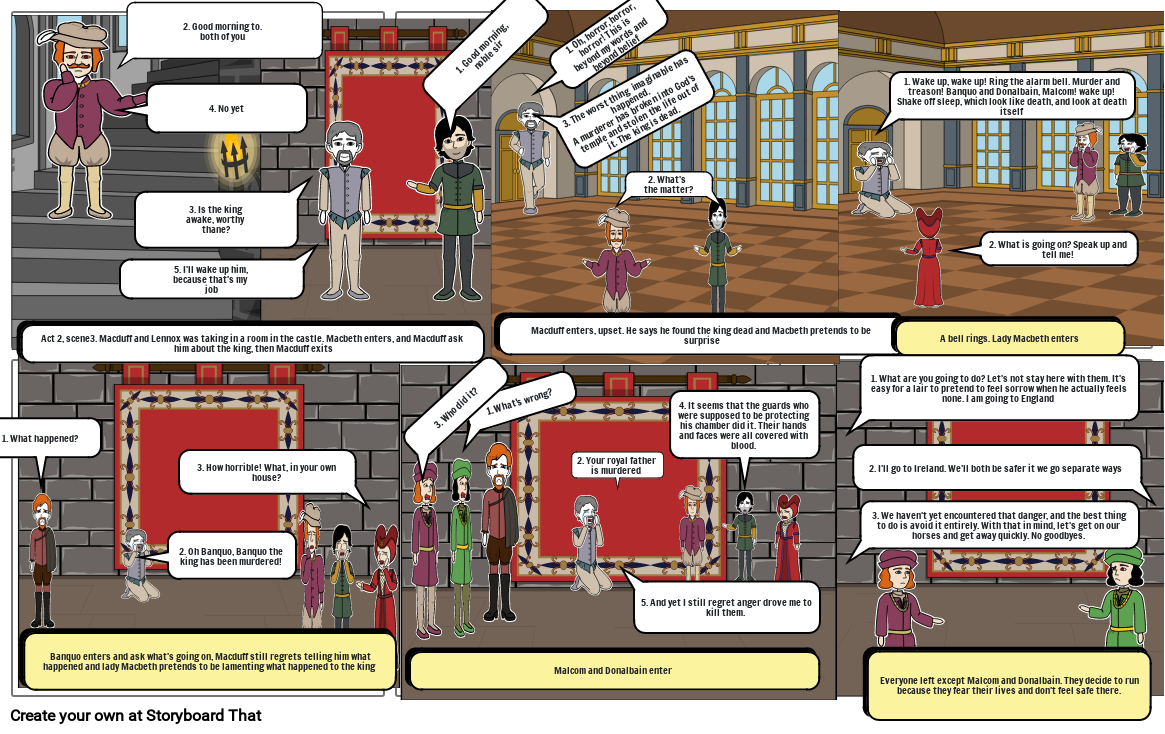
Macbeth Act 2, Scene 3 By Ct Storyboard por sthacuc616
2. A farmer committed suicide by hanging because. Answer: a. his fields were destroyed. 3. An English tailor had come to Hell for. Answer: a. stealing cloth out of French breeches. 4. Lady Macbeth on hearing about the murders in her house. Answer: a. fainted.

William Shakespeare's 'Macbeth' Act 1 Scene 2 Analysis (4 of 60) YouTube
Murder and treason! Banquo and Donalbain! Malcolm! awake! Shake off this downy sleep, death's counterfeit, And look on death itself! up, up, and see The great doom's image! Malcolm! Banquo! As from your graves rise up, and walk like sprites, To countenance this horror! Ring the bell.

Macbeth Act 2 Scene 2 Analysis Youtube Gambaran
Macbeth Act 2 Scene 3. William Shakespeare. Track 11 on Macbeth. Produced by. William Shakespeare. In a brief moment of comic relief, a drunken porter (doorkeeper) ignores the knocking at the door.

Macbeth Act 2 Scene 2 Analysis YouTube
This page contains the original text of Act 2, Scene 3 of Macbeth. Shakespeare's complete original Macbeth text is extremely long, so we've split the text into one scene per page. All Acts and scenes are listed on the Macbeth text page, or linked to from the bottom of this page. ACT 2, SCENE 3. The same. Knocking within.
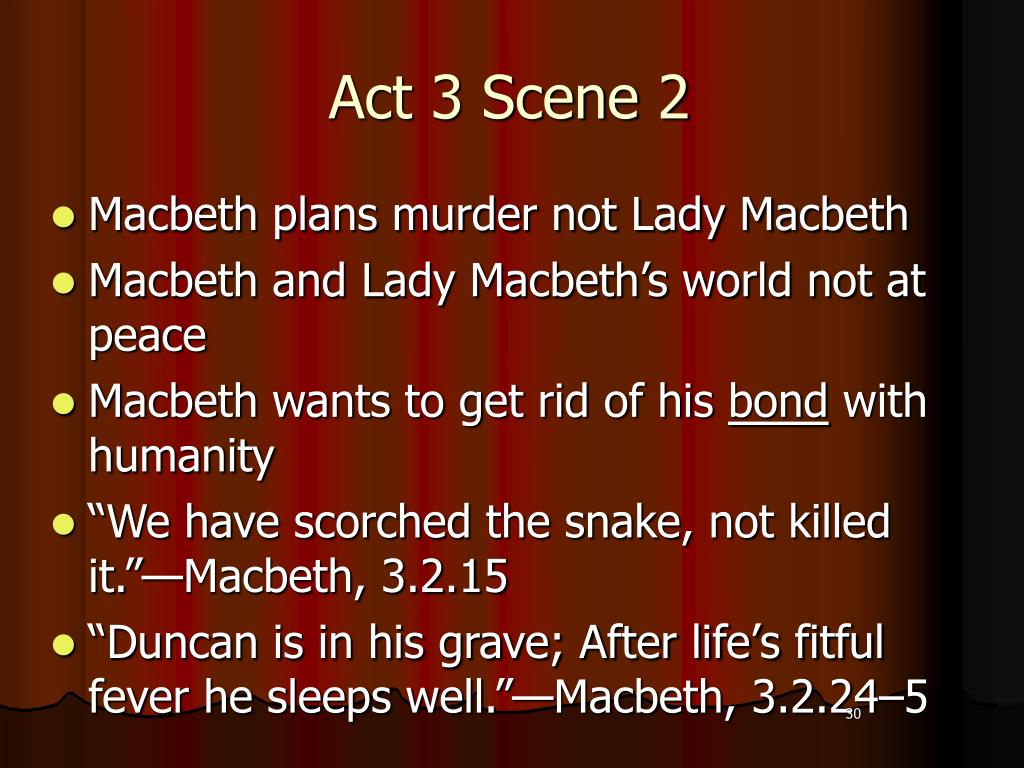
PPT Macbeth Introduction PowerPoint Presentation, free download ID
Act 2 Scene 3 from Shakespeare at Play's Macbeth. Shakespeare at Play is an interactive website that combines Shakespeare's texts with full video productions.
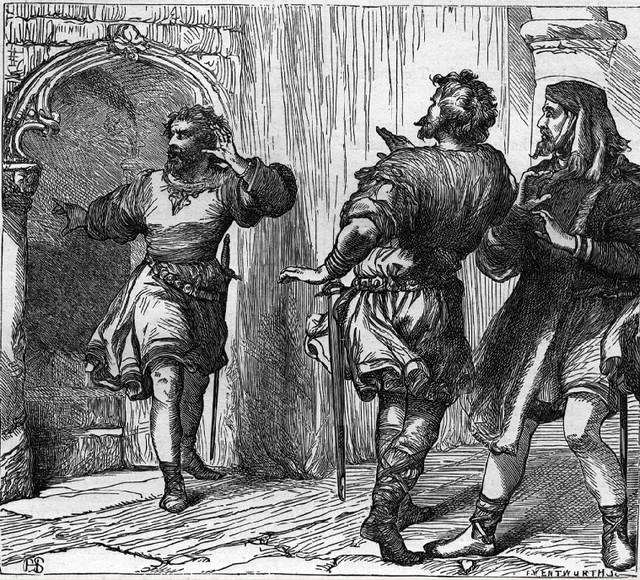
In My Book Macbeth Act II
Macbeth. Act 2, Scene 3. A porter hears knocking at the gate of Macbeth's castle. It's Macduff and Lennox, who have come to rouse Duncan. Macbeth arrives and tells them the king is still sleeping. Macduff heads off to wake the king, and promptly returns, screaming bloody murder. He wakes up the whole castle, including Lady Macbeth, who.
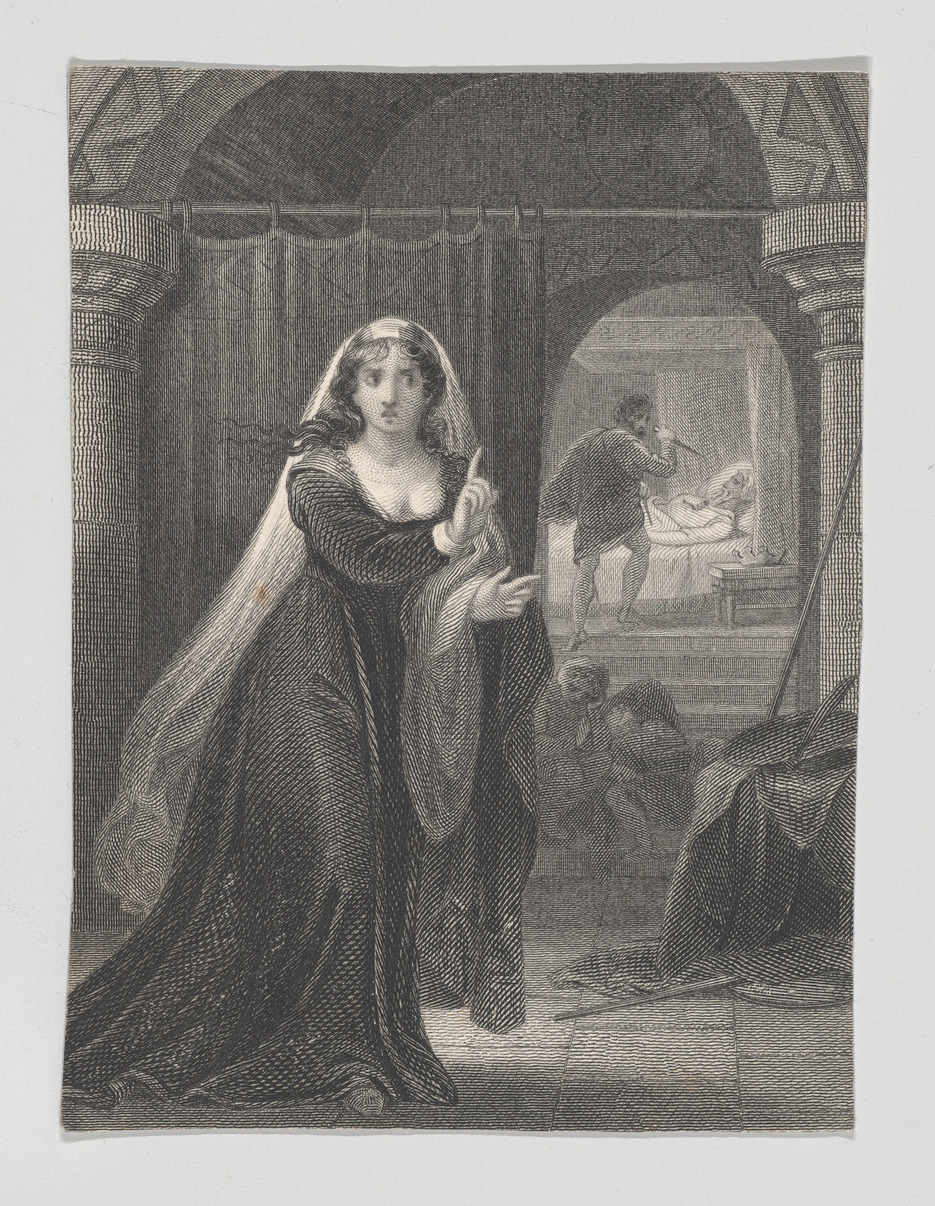
Lady Macbeth And Macbeth At Dinner
Buy my revision guides in paperback on Amazon*:Mr Bruff's Guide to GCSE English Language https://amzn.to/2GvPrTV Mr Bruff's Guide to GCSE English Literature.
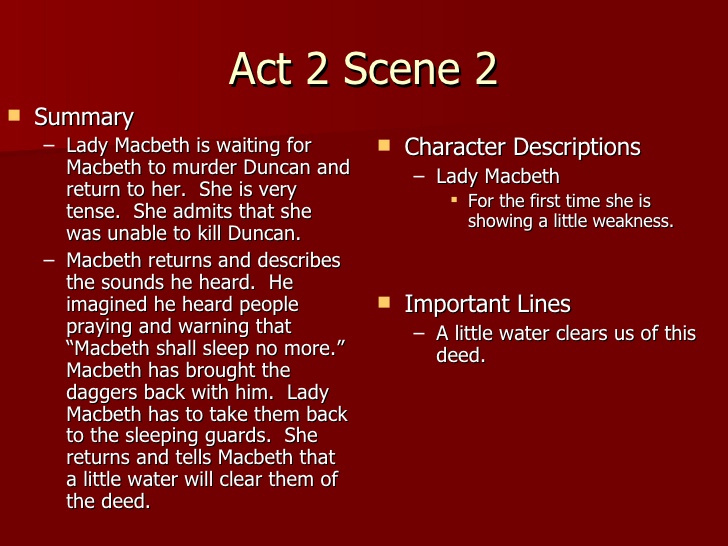
5 Quotes From Macbeth
Synopsis: A drunken porter, answering the knocking at the gate, plays the role of a devil-porter at the gates of hell. He admits Macduff and Lennox, who have come to wake Duncan. Macbeth appears and greets them. Macduff exits to wake Duncan, then returns to announce Duncan's murder. Macbeth and Lennox go to see for themselves.
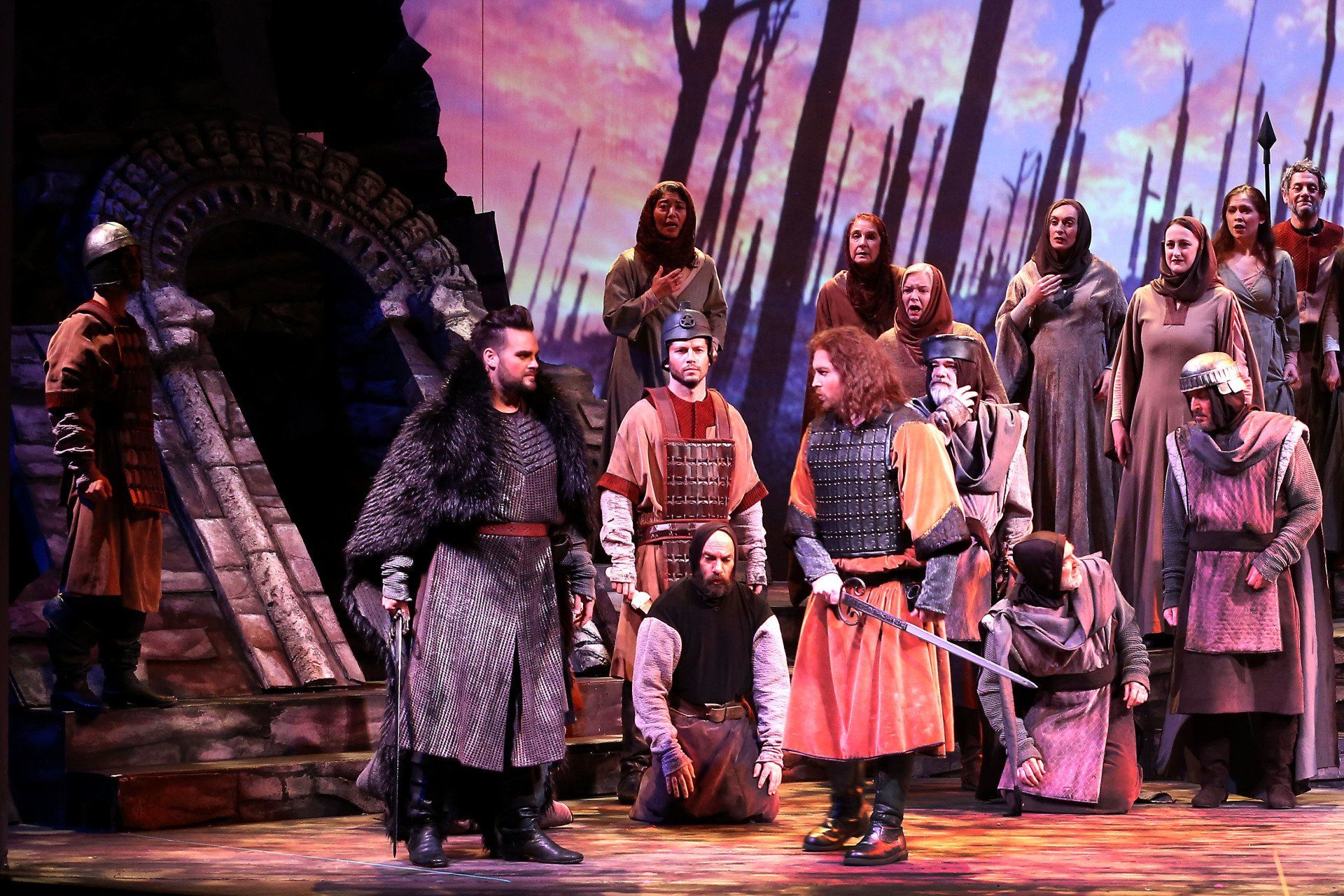
Macbeth
Macbeth responds: "We have scorched the snake, not killed it" (3.2.15). He fears someone might try to kill him as he killed Duncan, and seems envious of Duncan's "sleep" (3.2.25). In order to keep power built by violence, more violence is always needed. Macbeth knew this would happen; he's caught in the vicious cycle of violence.
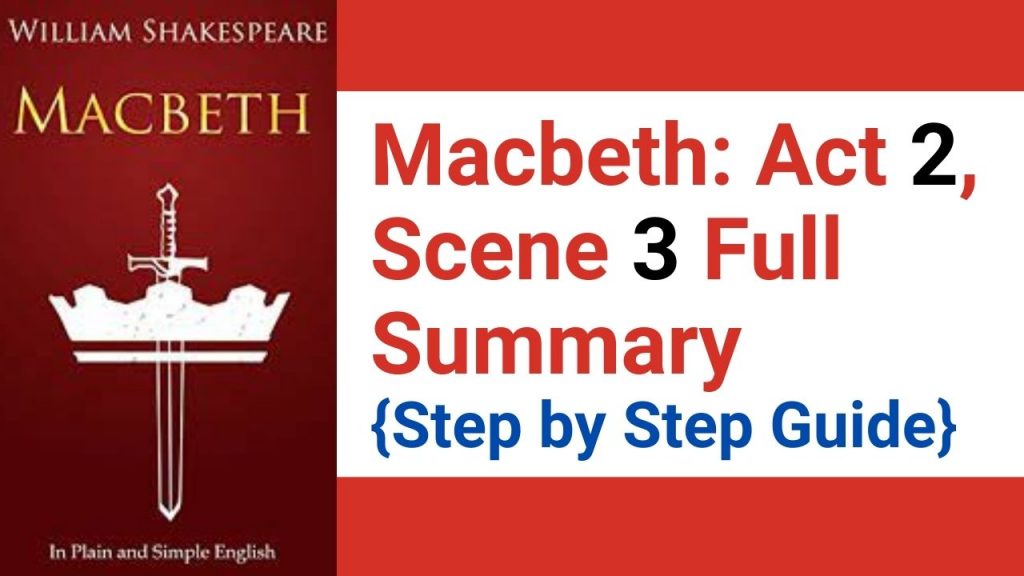
Macbeth Act 2, Scene 3 Full Summary {Step by Step Guide} » ️
Th' expedition of my violent love 125 Outrun the pauser, reason. Here lay Duncan, His silver skin laced with his golden blood, And his gashed stabs looked like a breach in nature For ruin's wasteful entrance; there, the murderers, Steeped in the colors of their trade, their daggers 130 Unmannerly breeched with gore.